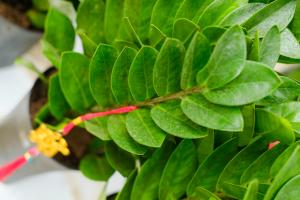Does Water Plant Fertilizer Affect Fish?
Water plant fertilizers are commonly used by aquatic gardeners to feed plants that are submerged in aquariums or ponds. However, many aquarium owners have raised concerns about whether the use of fertilizer in aquatic environments could be detrimental to fish. The answer is not a straightforward one and requires a deeper analysis of the factors that influence this issue.
The Impact of Water Plant Fertilizer on Fish
The impact of water plant fertilizers on fish can vary depending on the type of fertilizer used and the quantity applied, as well as the species of fish and the size of the aquarium or pond. Some fertilizers contain high levels of nitrogen and phosphorus, which can promote the growth of algae and other aquatic plants, thereby reducing the oxygen levels in the water. This can have a negative impact on the health of fish, which require oxygen-rich water to survive.
Moreover, some types of fertilizer contain heavy metals or other harmful chemicals that can be toxic to fish if they are ingested or absorbed through their gills. These chemicals can also accumulate in the fish's tissues over time, leading to chronic toxicity and other health issues. Therefore, it is important to choose a fertilizer that is specifically formulated for aquatic plants and safe for aquatic animals.
Factors that Influence the Effect of Water Plant Fertilizer on Fish
The effect of water plant fertilizer on fish can also be influenced by a number of other factors, such as the water temperature, pH level, and the overall water quality. Fish are highly sensitive to changes in their environment, and even minor fluctuations in these parameters can stress them and compromise their immune system. If the water quality is poor, the use of fertilizer can exacerbate the problem, since it can lead to an increase in organic matter and bacterial growth.
Furthermore, the size and species of fish in the aquarium or pond can also play a role in determining the impact of fertilizer on their health. Larger fish may be less affected by the use of fertilizer, since they have a higher tolerance to changes in the aquatic environment. On the other hand, smaller and more sensitive species may be more susceptible to the negative effects of fertilizer, as they require a more stable environment to thrive.
Best Practices for Using Water Plant Fertilizer in Aquatic Environments
While the use of water plant fertilizer in aquatic environments can pose a risk to fish, there are several best practices that can minimize the risk and ensure the safety of your aquatic pets. These include:
Choosing a fertilizer that is specifically formulated for aquatic plants and is safe for fish and other aquatic animals.
Following the manufacturer's instructions for the application of fertilizer, and avoiding over-fertilization.
Monitoring the water quality regularly to ensure that the levels of oxygen, pH, and other parameters are within the acceptable range for your fish species.
Keeping an eye on your fish for any signs of stress or illness, and taking action immediately if you notice any issues.
Performing regular water changes to maintain the water quality and remove any excess nutrients or organic matter.
By following these best practices, you can enjoy the benefits of using water plant fertilizers in your aquarium or pond, without putting the health of your fish at risk.
Conclusion
Water plant fertilizers can be a valuable tool for aquatic gardeners to promote the growth and health of aquatic plants in aquariums or ponds. However, the use of fertilizer in aquatic environments can also pose a risk to the health of fish and other aquatic animals. Therefore, it is important to choose a fertilizer that is safe for your fish species and follow the best practices for its use to minimize any negative effects on the aquatic ecosystem.

 how many times do yo...
how many times do yo... how many planted tre...
how many planted tre... how many pine trees ...
how many pine trees ... how many pecan trees...
how many pecan trees... how many plants comp...
how many plants comp... how many plants can ...
how many plants can ... how many plants and ...
how many plants and ... how many pepper plan...
how many pepper plan...

































